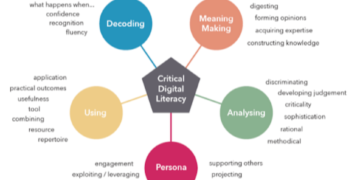You Must Address These 4 Concerns to Deploy Predictive AI
Predictive AI has rapidly emerged as one of the most potent technologies for better decision-making, operational efficiency, and new business opportunities. From anticipating customer behavior to optimizing supply chains, predictive AI-driven insights have the potential to be integrated into workflows across organizations and industries. However, responsibly and effectively deploying predictive AI requires much more than just connecting an algorithm. There are four key issues that every organization needs to consider before deploying any predictive AI system. Overlooking these challenges may lead to biased results, security risks, costly mistakes, or regulatory fines.
1. Data Quality and Availability
Predictive models are only as reliable as the data used to train them. Poor-quality data—whether incomplete, outdated, inconsistent, or inaccurate—will produce unreliable predictions. Before deploying predictive AI, companies must evaluate:
Completeness of data: Are there adequate samples for training a robust model?
It is important to invest in automated pipelines of cleaning, validation, and preprocessing. Many organizations underestimate this step, yet data readiness often consumes 70% or more of the entire AI project timeline. Without strong data foundations, even the most advanced predictive model cannot deliver meaningful value.
2. Bias, Fairness, and Ethical Use
Predictive AI systems have the potential to accidentally embed and amplify hidden biases in the underlying training data. This can be particularly critical when it involves hiring, lending, criminal justice, insurance, or healthcare. Responsible deployment of AI requires:
Audit datasets for potential demographic imbalances.
Use fairness-enhancing algorithms or re-sampling strategies
Regularly test models for discriminatory impact
Create transparent policies for ethical AI usage.
Fairness is more than just a compliance expectation; it’s intrinsically related to brand reputation and, in turn, to customer trust. Whenever companies deploy biased AI systems into the market, they are exposing themselves to legal risk and ultimately to unfavorable publicity. Ethical oversight should be embedded within every stage of model development, from data preparation through post-deployment monitoring.
3. Security and Privacy Protection
Predictive AI systems usually use sensitive or proprietary data. Therefore, tight security is required to prevent unauthorized access, data breaches, or model manipulation. Key steps include the following:
Encrypting data both in transit and at rest
Enforcing strict access controls and authentication
Using secure environments for model training
Ensuring the compliance with regional data protection legislation, such as GDPR.
Detection of adversarial attacks that try to deceive the model
Another related issue involves the analysis of customer behavior by predictive AI. For this purpose, an organization should collect only the required data, inform the user about the usage of their information, and respect the consent provided. Breach in this regard may lead to heavy fines, with long-term reputation loss.
4. Model Transparency, Exploitability, and Monitoring
With predictive AI, one of the biggest challenges is the so-called “black box” problem: models make decisions that are not always easy to explain. For real-world deployment, transparency is critical. Organizations need:
Exploitability tools to understand why a model made a certain prediction
Model monitoring systems which track performance over time
Schedules of retraining to maintain accuracy as data evolves
Human oversight to validate decisions when necessary
If not continuously monitored, models can degrade rather rapidly due to shifting market conditions, consumer behavior, or exogenous factors. Exploitability helps build trust among stakeholders, regulators, and end-users.
Conclusion
With great potential, Predictive AI requires substantial planning and responsible governance for successful deployment. Ensuring data quality, fairness, security, and transparency will let organizations deploy AI in accurate, ethical, and truly impactful ways.











































